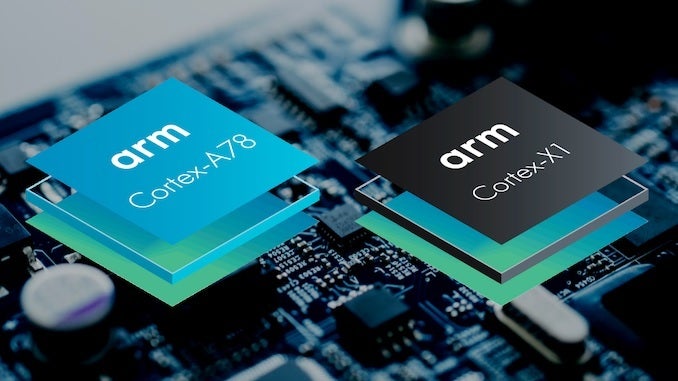Let the chips fall where they may: FTC sues to block $40 billion NVIDIA-Arm merger

CPU core designer Arm Holdings has a $40 billion acquisition offer on the table from graphics chip designer NVIDIA. The deal was announced in September 2020 but still is awaiting regulatory approval. Earlier this year, Qualcomm expressed its displeasure with the potential transaction with the FTC, the European Commission (EC), the U.K.'s Competition and Markets Authority, and China’s State Administration for Market Regulation.
It appears that Qualcomm was able to get its points across to the FTC which announced today that it is suing to block the merger. Qualcomm is pushing against the deal hard because it fears that once NVIDIA takes control of Arm, it won't allow chip designers like Qualcomm to use Arm's architecture. That is a frightening proposition to the 500 chip companies worldwide that license ARM's designs.
Arm's chip architectures are found in 95% of the world's smartphones
In fact, Arm's chip architectures are found in 95% of the world's smartphones and 95% of the chips designed in China. The FTC in its press release said, "The proposed vertical deal would give one of the largest chip companies control over the computing technology and designs that rival firms rely on to develop their own competing chips. The FTC’s complaint alleges that the combined firm would have the means and incentive to stifle innovative next-generation technologies, including those used to run datacenters and driver-assistance systems in cars."

Arm's chip architecture is used on a vast majority of the world's smartphones
Arm is currently owned by Japan's SoftBank and is considered a neutral participant in the chip industry, something that the FTC pointed out when it wrote, "Arm licenses its Processor Technology using an industry-described neutral, open licensing approach and is often dubbed the “Switzerland” of the semiconductor industry according to the complaint."
The FTC filing states that if the deal with NVIDIA is completed, three global markets that NVIDIA competes in using Arm-based products will be affected. These include High-Level Advanced Driver Assistance Systems for passenger cars. These systems deliver driving functions assisted by computers such as automated lane changing, highway entrance and exit, and collision prevention.
The second market that would be affected by the deal, where NVIDIA is a player using Arm products, is in DPU SmartNICs. These are networking products that increase the efficiency and security of datacenter servers. The third such market is Arm-Based CPUs for Cloud Computing Service Providers. These help run datacenters that provide cloud computing services.
FTC Bureau of Competition Director Holly Vedova says that the regulatory agency is suing to block the largest merger of chip companies in history to prevent a conglomerate from blocking innovation required for next-generation technologies.
Vedova says, "Tomorrow’s technologies depend on preserving today’s competitive, cutting-edge chip markets. This proposed deal would distort Arm's incentives in chip markets and allow the combined firm to unfairly undermine NVIDIA's rivals. The FTC's lawsuit should send a strong signal that we will act aggressively to protect our critical infrastructure markets from illegal vertical mergers that have far-reaching and damaging effects on future innovations."
The FTC press release summed up the reason for the lawsuit. "Because Arm's technology is a critical input that enables competition between NVIDIA and its competitors in several markets, the complaint alleges that the proposed merger would give NVIDIA the ability and incentive to use its control of this technology to undermine its competitors, reducing competition and ultimately resulting in reduced product quality, reduced innovation, higher prices, and less choice, harming the millions of Americans who benefit from Arm-based products."
The FTC lawsuit seeking to block the merger should not be seen as a surprise. In February, five industry sources and two tech investors said that there was a good chance that the merger would be blocked by at least one regulatory agency. NVIDIA, at the time, said that it was confident that the deal would get approved.
Follow us on Google News












Things that are NOT allowed:
To help keep our community safe and free from spam, we apply temporary limits to newly created accounts: